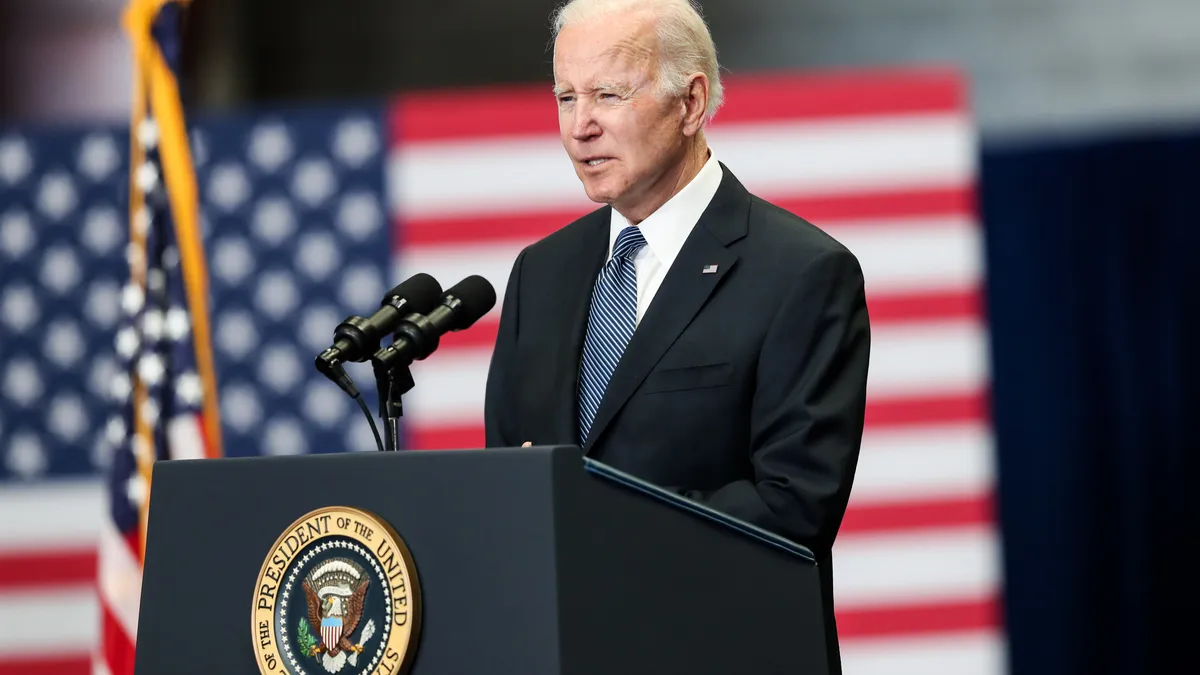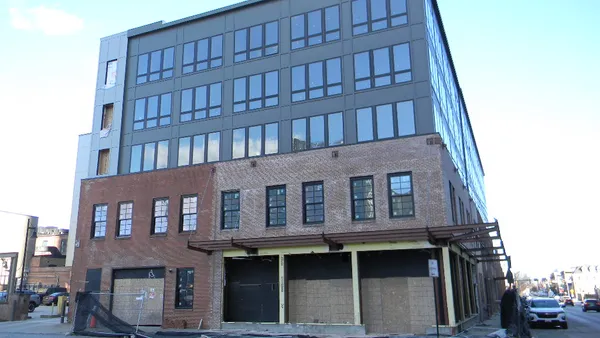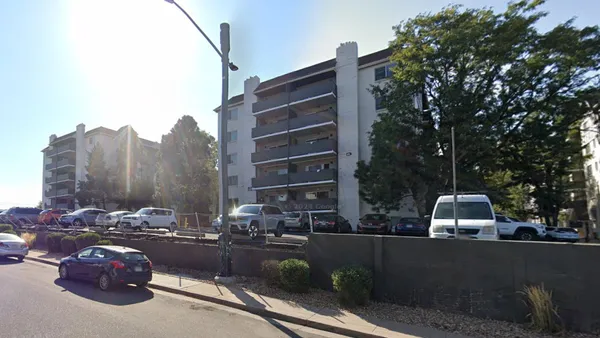Dive Brief:
- The Biden administration announced a set of federal actions Wednesday aimed at protecting renters and making renting more affordable and released a blueprint for establishing a bill of rights for renters.
- Key renter protection principles outlined in the Blueprint for a Renters Bill of Rights include: access to housing that is safe, decent, and affordable; clear and fair leases; freedom to organize without obstruction or harassment; and access to resources related to avoiding eviction, eviction legal proceedings and future housing instability. The blueprint also called on federal, state and local governments to do all they can to inform renters of their rights and protect them from unlawful discrimination and exclusion.
- “Today’s announcements recognize there are responsible housing providers – large and small, national and local – willing to treat renters fairly, but it also holds accountable those who exploit market realities at the cost of renters’ housing access and stability,” the White House release states.
Dive Insight:
The Biden administration has not been able to push legislation through Congress that provides additional federal funding to help address the affordable housing crisis, as was proposed in the Build Back Better that failed to pass through the Senate last year.
However, the administration has taken other actions. These have included releasing a plan last May to increase the supply of housing nationwide, in part by giving cities and towns with reformed zoning and land-use policies higher scores for certain federal grants. The U.S. Interagency Council on Homelessness also released a plan in December aiming to reduce homeless 25% by 2025 through “proven” models for addressing homelessness, such as housing first.
And last week, the Biden administration reintroduced the Affirmatively Furthering Fair Housing rule requiring states, cities and public housing agencies that seek federal funds to complete a comprehensive assessment explaining how housing segregation exists in their communities and their plans to address it.
The White House on Wednesday announced the Federal Trade Commission and the Consumer Financial Protection Bureau will collect information to identify practices that unfairly prevent tenants and rental applicants from accessing or staying in housing, which will be used to inform enforcement and policy actions. Such practices that will be reviewed include tenant background checks; the use of algorithms in tenant screenings; adverse action notices by landlords and property management companies; and how an applicant’s source of income factors into housing decisions.
The two agencies will also coordinate enforcement efforts to ensure accurate credit reporting and hold background check companies accountable for “unreasonable procedures.”
The Federal Housing Finance Agency will also launch a new public process to evaluate proposed actions promoting renter protections and limits on “egregious rent increases for future investments.” The agency will provide periodic updates, including one within six months. In November, the FHFA announced it would increase affordability in the multifamily rental market by creating new requirements that encourage the financing of multifamily loans that guarantee affordable housing, the White House stated.
The U.S. Department of Justice will hold a workshop to inform potential guidance updates around “anti-competitive information sharing, including in rental markets.” The U.S. Department of Housing and Urban Development will propose a rule requiring public housing authorities and owners of project-based rental assistance properties to provide at least 30 days of notice before ending a lease due to the nonpayment of rent.
The administration will hold quarterly meetings with “a broad, diverse, and varying group of tenants” and tenant advocates, where they can share ideas for strengthening tenant protections.
Lastly, the Biden administration plans to launch this spring a Resident-Centered Housing Challenge that calls on housing providers and various stakeholders to change their practices and make their own commitments to improve renters’ quality of life. The challenge will also encourage state, local, tribal and territorial governments to boost existing policies and develop new ones that “promote fairness and transparency in the rental market.”
Diane Yentel, president and CEO of the National Low Income Housing Coalition, said in a statement on Twitter that the administration’s actions “are an important step towards achieving President Biden’s commitment to establishing a Renters Bill of Rights.” She said it goes “much further” than she’s ever seen the White House do “in amplifying and promoting the importance of renter rights and protections.”
However, she added, the White House announcement did not address other actions that housing advocates have called for, such as taking action “to hold corporate landlords accountable for documented, egregious and often unlawful behavior.”












